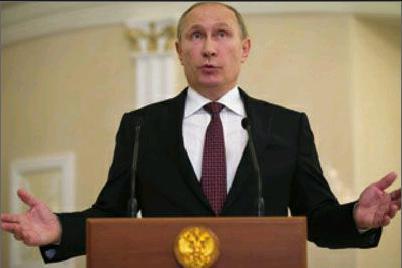Murder in Moscow
2015-03-24ByYangJin
By+Yang+Jin

The slaying of Russian opposition politician Boris Nemtsov in February has not triggered anti-government sentiment or radical criticism, suggesting weakness in the countrys opposition parties and the continued strength of Russian President Vladimir Putins control over domestic politics.
The 55-year-old politician Nemtsov was a unique political figure in Russia. In 1999, Nemtsov and his right-wing political party won the election to the State Duma, Russias parliament, in which he also became the vice speaker. In the last decade, Nemtsov was a key member of the Russian opposition and a serious critic of the Russian president.
While the reactions were moderate, many people remain skeptical of the governments investigation. Some suggested the murder was closely linked to Putin or his political allies near the center of power. Others believed that Nemtsov could have been killed by the proWestern forces or even U.S. intelligence agents.
Shortly after Nemtsovs death, Putin aimed to show that he had no part in Nemtsovs murder by condemning the vicious political murder and ordering local police to implement a prompt and thorough investigation. Major Russian media outlets speculated about the murderers but did not make links to the Kremlin. Rather, they focused on Nemtsovs personal profile.
The assassination happened just a day before the scheduled opposition gathering in Moscow, organized by the opposition to call for a stop to armed conflict in eastern Ukraine. The gathering was not postponed by Nemtsovs death. Rather, on March 1, thousands of supporters marched in memory of him in central Moscow. The peaceful gathering showed that the Russian opposition is calm and clearheaded about Nemtsovs murder, and did not seek to capitalize on the situation as an opportunity to stage a revolt.
Russian politics stable
The Putin administration has remained stable in spite of the opposition leaders murder as well as the many external problems that have stemmed from its confrontation with the West since last year.
It has been 15 years since Putin entered into the core of power in Russia in 2000 when he was first elected as Russian president. At the beginning of his term, he pulled the country back from disaster by addressing a number of challenges left over by his predecessor Boris Yeltsin, such as political volatility and economic stagnation. In his two consecutive terms, the leader cemented his rule by implementing a series of strong measures. For example, notorious oligarch groups have been greatly weakened while political order has been restored. Russia embraced years of fast economic growth before 2008 thanks to rising oil prices. All of these achievements bolstered Putins standing as an effective leader.
Putin ended his presidency but remained in power as prime minister under his political partner Dmitry Medvedev, who was elected president. Their political alliance kept Putin near the height of power under the political banner of the United Russia party, thereby ensuring Putins return to the presidency in 2012. Nevertheless, an economic downturn following the 2008 global financial crisis and armed conflict with Georgia weakened Putins political prestige. In the 2012 presidential election, Putin won with 63 percent support—far less than the overwhelming 71 percent in the previous election.
The decline suggested that despite his election victory, Putin had failed to win over the whole of Russian society. In recent years, the country has undergone profound changes as evidenced by the emergence of numerous domestic interest groups and declining support for the tough leaders “sovereign democracy” ideology.
The outbreak of the Ukraine crisis at the end of 2013 dramatically altered the diplomatic landscape and revealed differences among the Russia-led Commonwealth of Independent States (CIS) over whether to follow a Western model or remain under Russian influence.
Russia regards Ukraine as an important member of the CIS owing to its geopolitical significance as a buffer between Russia and NATO. But the pro-Western forces in Ukraine have grown in strength, having ousted the pro-Russia President Viktor Yanukovych and accelerated the campaign to join the European Union and NATO. Responding to the perceived security threat, a strong sense of national pride trumped domestic disputes among the Russian people. The whole nation rallied around Putin, leading to skyrocketing approval ratings.
Russias political opposition has gradually shrunk from the domestic spotlight and their voice have been drowned out by concerns over the imminent external security threat, which could explain why Nemtsovs murder has not triggered a radical response in Russian politics.
Possible effects
Many Russian people first suspected that the West may have had some involvement with the murder of Nemtsov, in an effort to cast doubt on Putins rule. However, on March 8, five suspects were arrested by police in connection with the politicians assassination. The prime suspect, Zaur Dadaev from Chechen, confessed his involvement in the murder and said he organized the crime in revenge for Nemtsovs“negative comments on Muslims and Islam,”Russia Today reported.
Some local investigators have raised other possible motives for Nemtsovs murder, ranging from a political provocation to his business activities and personal life.
Regardless of the motives behind the murder, the distrust between Russia and the West is likely to persist for the foreseeable future. In recent years, the Western media has repeatedly demonized Putin and attacked his domestic policies, but his government remains stable. Many Russian people believe that the West is colluding to weaken Russias leadership in CIS and contain its economic rise. The Ukraine crisis presented an opportunity for Russia to counteract the eastward expansion of NATO—the annexation of Crimea and support for armed forces in the countrys eastern areas postponed Ukraines plan to join the EU and the NATO indefinitely.
On March 6, NATO flexed its muscles in a military drill in Latvia near the border with Russia, showing that the standoff between Russia and the West is unlikely to abate anytime soon. Nemtsovs murder stands as yet another development in the ongoing tensions between Russia and the West.
